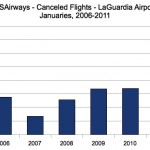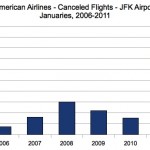Taking steps that reduce the negative impact each of us has on the earth–being environmentally sensitive–is unambiguously good. While some of us are surely more virtuous than others (as in most things), I often feel as though the questions and answers around environmental sensitivity are not as clear-cut as all that. Getting into discussions about it (such as with my mother) pulls out the Hobgoblins of Logic and makes me wish that some combination of environmentalists, scientists, economists, and database engineers (I’m looking at you, Wolfram|Alpha) would get together a create a computational database to help resolve certain tricky questions.
What are those tricky questions? Well, here are a few, divided by category:
Power conservation:
If you live in Texas, Ohio, Indiana or Pennsylvania, is a plug-in electric car worse for the environment than a hybrid-electric model that charges its battery from a gas-powered engine? Those four states are among the top users of coal for electricity generation–and the emissions from coal are worse than those from gasoline. (North Carolina and Georgia should also be on this list, since two of the three largest coal-powered power plants are in those two states.) So perhaps it is better not to increase electricity demands in those states by charging your “clean”, “zero emissions” vehicle with coal-powered electricity?
Meanwhile, all those electric cars use special lithium ion batteries. Those are technically recyclable… but the costs (and energy) involved seem disproportionate to the value, which means it’s less likely to happen. So the question is: if you buy a hybrid or all-electric car, but use it in ways that diminish the life of the battery (such as letting the car sit unused for extended periods of time), is it still better for the environment? Is a 50% reduction in battery life a fair trade-off for burning fewer fossil fuels?
And speaking of transportation challenges: The “locavore” movement sure does sound appealing. And for a city slicker it’s especially appealing, because the idea that one can get fresh food from farms just a short distance away, well: this has to be better, right? Better food, better for the environment? Except that there’s all these arguments and some evidence showing that maybe that isn’t true: that an old farm using an old (less fuel-efficient, less efficiently-packed) truck coming from traffic-congested nearby areas might use more energy than a modern transportation network that ships food by plane or train long distances with great efficiency. So, which is it, local or not? And how are we supposed to know, product by product?
Water conservation:
If you live in the water-deprived Southwestern United States, and you go to the grocery store, is it better to buy the bags of greens that have been pre-washed or the greens you bring home and wash yourselves? Assuming the plastic levels are equal (since you would likely bag your unwashed greens before taking them home), what is the environmental impact difference, factoring in water and power usage?
A variant of this question is relevant here in the water-plentiful New York. Last year, some of the greens and other vegetables we received from the Community Supported Agriculture (CSA) group to which we belonged were so fresh-from-the-farm dirty that it took significant time under the sink to clean them. (The CSA in this case is a group that buys organic produce from some farms in Long Island; those farms bring their goods directly to a central distribution point in the neighborhood.) Is it generally better to buy these vegetables even if it takes more water to wash them, then to buy the more industrially produced organic–but pre-washed–greens at the grocery?
We are devoted to reusable containers for food storage. We buy good quality ones that can be reused many, many times, and we rarely microwave them (so they tend to last longer). So even though it seems more virtuous to use these than, say, a ziploc bag … can I take it for granted that the water required to wash them is a better use of resources than throwing out the bag? And what kind of recycling processes do we need to have in place before that equation may not be true?
Pesticides, etc.:
It’s easy to scare the bejeezus out of people about pesticides in food. (“Thanks,” Environmental Working Group!) How about telling us more info about the pesticide residues? If I peel the apple, does that get rid of it? If the strawberries are well-washed, does that get rid of it? Or are we talking about leached-into-the-food residue here? How would you balance the organics-cost-more vs. needing-to-feed-a-family dynamic?
Let’s assume that money is actually an issue. If buying organic groceries reduces my available funds for charitable donations by 15%–charity that might be given to help the hungry–is this still worth the trade-off? That is, is the environmental impact of organic produce so powerful that it can have that kind of offset?
I could probably go on. (And on.) Is the question about charitable gifts a red herring? Possibly. But overall these are very real problems–for which we are mostly unequipped to come up with genuinely logical answers. If environmentalism is to succeed–I mean, to really succeed in reshaping behavior in the modern world–someone is going to have to tackle these and other questions, probably state by state and city by city, neighborhood by neighborhood. Personalized environmental audits: the wave of the future.





